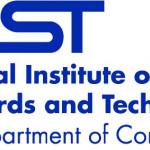- Settore: Technology
- Number of terms: 2742
- Number of blossaries: 0
- Company Profile:
The National Institute of Standards and Technology (NIST) — known between 1901 and 1988 as the National Bureau of Standards (NBS) — is a measurement standards laboratory and a non-regulatory agency of the United States Department of Commerce. The institute's official mission is to promote U.S. ...
(1) A BB(α) tree where the weights are the number of searches down that path. (2) A height-balanced binary tree that divides regions along their boundaries to serve as a spatial access method.
Industry:Computer science
(1) A computation which takes some arguments or inputs and yields an output. Any particular input yields the same output every time. More formally, a mapping from each element in the domain to an element in the range. (2) A subroutine which returns a value.
Industry:Computer science
(1) A data structure accessed beginning at the root node. Each node is either a leaf or an internal node. An internal node has one or more child nodes and is called the parent of its child nodes. All children of the same node are siblings. Contrary to a physical tree, the root is usually depicted at the top of the structure, and the leaves are depicted at the bottom. (2) A connected, undirected, acyclic graph. It is rooted and ordered unless otherwise specified. Formal Definition: (1) A tree is either <ul> <li>empty (no nodes), or <li>a root and zero or more subtrees. </ul> The subtrees are ordered.
Industry:Computer science
(1) A data structure that is partially composed of other instances of the data structure. For instance, a tree is composed of smaller trees (subtrees) and leaf nodes, and a list may have other lists as elements. (2) An algorithm in which functions might call themselves. For instance, quicksort or heapify.
Industry:Computer science
(1) A directed acyclic graph representing the suffixes of a given string in which each edge is labeled with a character. The characters along a path from the root to a node are the substring which the node represents. (2) A finite state machine that recognizes a set of words.
Industry:Computer science
(1) A function with exactly n arguments. (2) A function which takes any number of arguments, or a variable number of arguments.
Industry:Computer science
(1) A heuristic algorithm to find a near-optimal solution to the traveling salesman problem. Step 1: find a minimum spanning tree T. Step 2: find a perfect matching M among vertices with odd degree. Step 3: combine the edges of M and T to make a multigraph G. Step 4: find an Euler cycle in G by skipping vertices already seen. (2) An algorithm to find the chromatic number of a graph.
Industry:Computer science
(1) A high-level algorithmic framework or approach that can be specialized to solve optimization problems. (2) A high-level strategy that guides other heuristics in a search for feasible solutions.
Industry:Computer science
(1) A method to detect and correct errors by adding bits derived from a block or string of bits to the block. (2) An algorithm to compute bits characteristic of a block based on the algebra of polynomials over the integers, modulo 2. (3) The characteristic bits of a block.
Industry:Computer science
(1) A perfect matching between vertices of a bipartite graph, that is, a subgraph that pairs every vertex with exactly one other vertex. (2) The problem of finding such a matching.
Industry:Computer science
